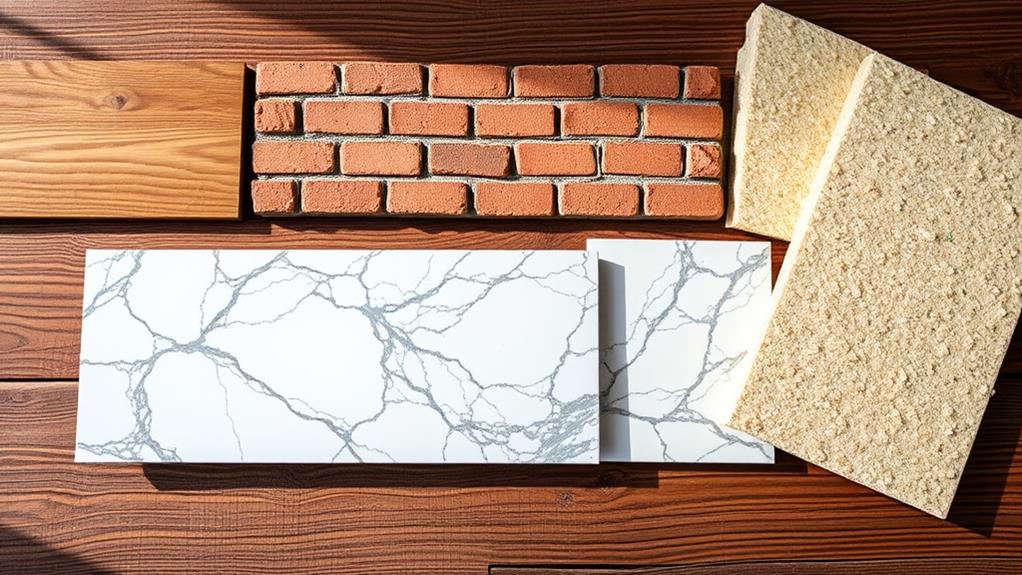Contractor pricing in your area is influenced by several key factors. Market demand plays a big role, with higher bids during busy times and lower ones when things are slow. Labor costs are another important aspect, as skilled workers often command higher wages. Material quality affects both the price and durability of your project; cheaper materials can save money but might cost more over time. Additionally, overhead costs like rent and insurance factor into bids. Finally, permits can add expenses and extend timelines, so understanding these elements helps you prepare better for your project ahead.
Contractor Pricing Strategies

When considering contractor pricing strategies, you'll notice they often adapt to market fluctuations and project demands. Contractors typically adjust their bids based on workload; during slow periods, they may offer aggressive pricing to secure jobs, while higher bids are common when demand spikes.
Additionally, reliable local contractors often leverage research and recommendations to evaluate competitive pricing in your area. Overhead costs play a significant role in contractor pricing, as expenses like rent, insurance, and salaries can lead to higher estimates, especially for larger companies.
The type of contract also influences pricing strategies. For instance, fixed-price contracts provide a clear project cost, while cost-plus contracts allow flexibility but can lead to uncertainty in overall project costs.
Labor costs are another vital factor; skilled labor often commands higher wages, affecting your total expenses. Local market conditions, such as the availability of labor and supply-demand dynamics, further shape contractor pricing strategies.
Project Assessment Factors
Evaluating a project accurately is essential for contractors to provide reliable estimates and avoid unexpected costs. Several project assessment factors play a critical role in achieving accurate pricing. Clear communication between you and the contractor can greatly enhance bid accuracy, as a well-defined renovation plan helps them understand your needs.
Contractors must consider total costs, including material costs and overhead expenses, when calculating their bids. Providing a detailed project scope and material allowances can lead to more reliable estimates because each contractor interprets project requirements differently. This clarity allows them to avoid potential liabilities that could arise from unexpected issues.
It's also important to set realistic expectations. Contractors often evaluate homeowners based on their organization and clarity, which can affect the perceived feasibility of a project. If a contractor submits a low bid, it might eventually result in additional charges due to unforeseen circumstances.
Consequently, thorough project assessments are crucial for avoiding unexpected costs and ensuring effective project management. By focusing on these factors, you can help contractors deliver accurate pricing that aligns with your goals.
Impact of Permits

Steering through the permitting process is an essential step in any renovation project, as it directly impacts your budget and timeline. Permit costs can vary greatly based on the scope and complexity of your project, often influencing contractors' pricing strategies.
When you secure the necessary permits, you guarantee compliance with safety and building codes, preventing costly fines and potential legal issues for both you and the contractors.
Moreover, the requirement for inspections at various stages adds time and expense, leading contractors to include these costs in their bids. If permits aren't obtained, you risk facing expensive corrections and delays, which can prompt contractors to inflate initial project estimates to cover these potential risks.
Including permit fees in your initial project estimates fosters transparency, helping you better understand the overall budget for your renovations.
Labor and Overhead Costs
Labor and overhead costs play an essential role in determining the overall pricing of construction projects. Labor costs typically represent the largest expense for contractors, especially since skilled labor often commands higher wages due to market demand and shortages. When you hire a contractor, you'll notice that these labor costs are a significant factor in their pricing.
Overhead costs also contribute to the contractors' price. These ongoing expenses include office rent, insurance, and utilities, which can vary based on the size and structure of the contractor's business. Smaller contractors usually have lower overhead costs, allowing for more direct communication with clients. In contrast, larger firms might incur higher overhead due to extensive staffing and resources.
Effective management of labor and overhead costs is vital for maintaining competitive pricing. Contractors must balance their profit margin with the need to attract clients in a fluctuating market.
Local market conditions and economic factors can lead to variations in labor rates and overhead expenses, impacting pricing strategies. Understanding these costs helps you make informed decisions when selecting a contractor for your construction needs.
Material Quality and Choices

When considering a contractor's pricing, material quality and choices can greatly impact your overall project costs. The materials you select influence both the immediate job prices and long-term expenses. Here are three key considerations:
- Material Quality: High-end materials, like custom cabinetry and luxury flooring, often lead to higher bids. While these options enhance durability and aesthetics, they can markedly increase your overall costs.
- Contractor Markup Percentage: Contractors generally apply a markup percentage on materials, which can range from 10% to 40%. This markup directly affects your total project costs based on the materials selected.
- Pricing Methods: Material costs fluctuate due to commodity pricing trends, such as tariffs on steel or changes in oil prices. Contractors must account for these variables in their estimates, ensuring you understand how your choices affect pricing.
Ultimately, the choices you make regarding material quality directly influence your project's overall success and budget.
Conclusion
In summary, understanding what influences contractor pricing can help you make informed decisions for your projects. Think of it like baking a cake: if you use high-quality ingredients and follow the right recipe, you'll get a delicious result. However, if you skimp on ingredients or cut corners, the final product might not turn out as you hoped. By considering factors like labor, materials, and permits, you can guarantee your project is both successful and cost-effective.


Leave a Reply